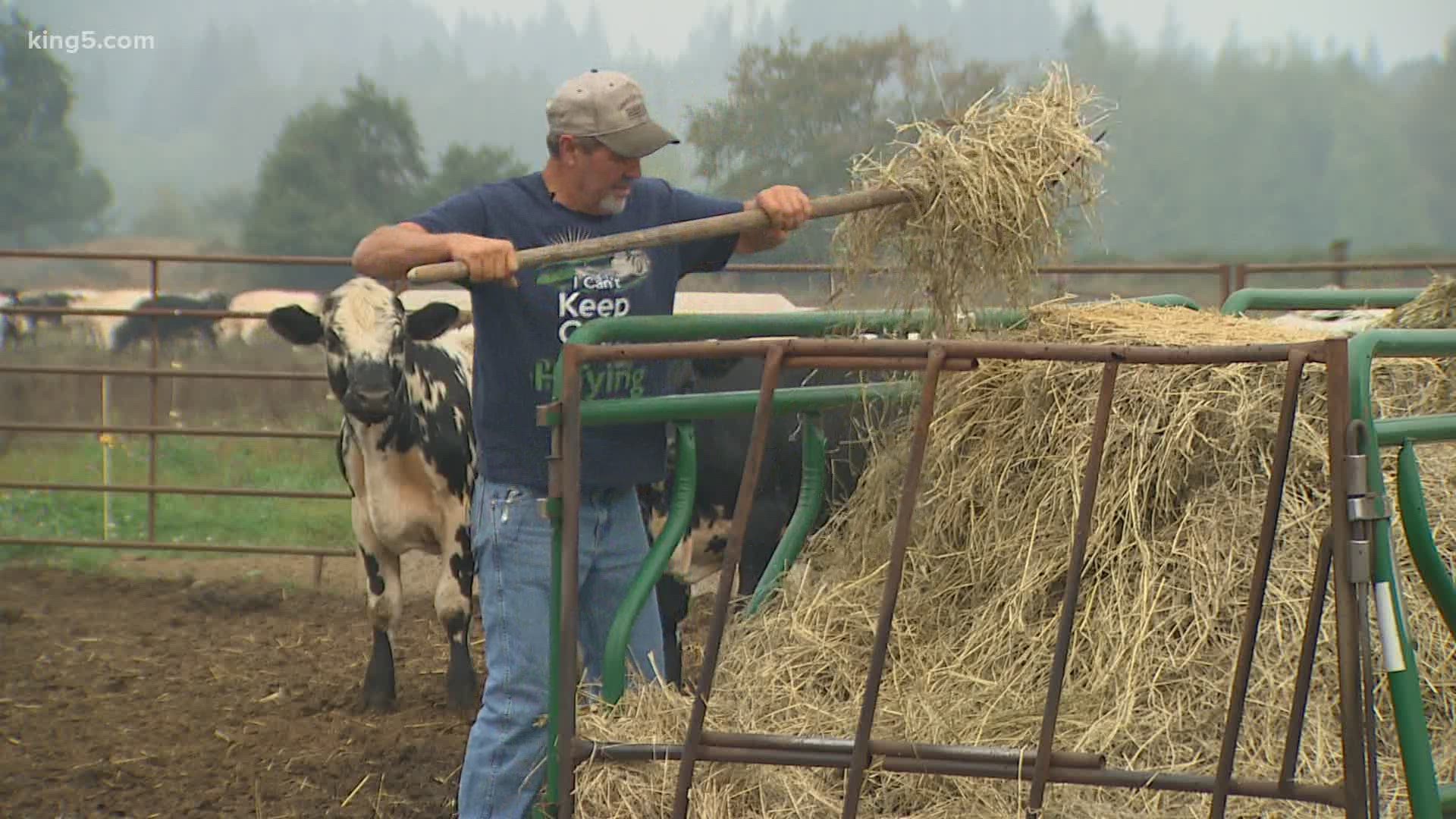GRANITE FALLS, Wash — Todd Macomber knows first hand how hard life can be on a family farm.
His great-grandfather homesteaded the farm he now runs in Granite Falls more than a century ago.
"It's not for the faint of heart," he said. "You're always worrying about the weather."
This year's weather brought devastating wildfires to eastern Washington that have decimated family farms, big and small.
They've lost tractors, trucks, troughs, livestock -- their livelihoods.
"Every bit of infrastructure is wiped out. Holding facilities, fences, cows, horses. It's all gone. It's all ash," Macomber said.
The biggest fear among fire victims is that there won't be enough hay to get the animals that survived the flames through the winter.
Some animals could starve.
Some farms could die as well.
"There is no other way of life for them. They've been doing it for generations. It's all they know," Macomber said. "Where do you turn? They're just in survival mode."
Right now, they're turning to farmers in western Washington who are organizing to help.
Through the Snohomish County Cattlemen Association, they're donating tons of their own hay and trucking it across the mountains.
The ranchers sent out 70 tons on Monday. An additional 40 tons will go out this weekend, but much more is needed.
Children from 4-H Clubs even donated funds they were going to use for county fairs canceled by coronavirus.
Duncan Farms in Chehalis and Emergency Equipment Solutions are taking donations for hay, dog and cat food, and medical supplies.
"It is going to take no less than 110 semi-trucks of hay/haylage to cover food needs for the livestock animals until 2021 when spring grass comes in," organizer Laura Dobson said.
Their first convoy leaves Friday morning to deliver hay, food and supplies to the Okanogan County Fairgrounds and to farms and ranches who no longer have vehicles to use for pick up.
Todd Macomber says no one will let up until all those farmers are stable once again.
"We would hope that it would be the same if it was me in the reverse mode," he says, choking back tears. "I know the surrounding neighbors would come to help. It's pretty dear."
Like all farmers, Macomber understands the next disaster could very well hit him.
He considers all family farms like family.
"It's all you work for your entire life and then it's just gone."

